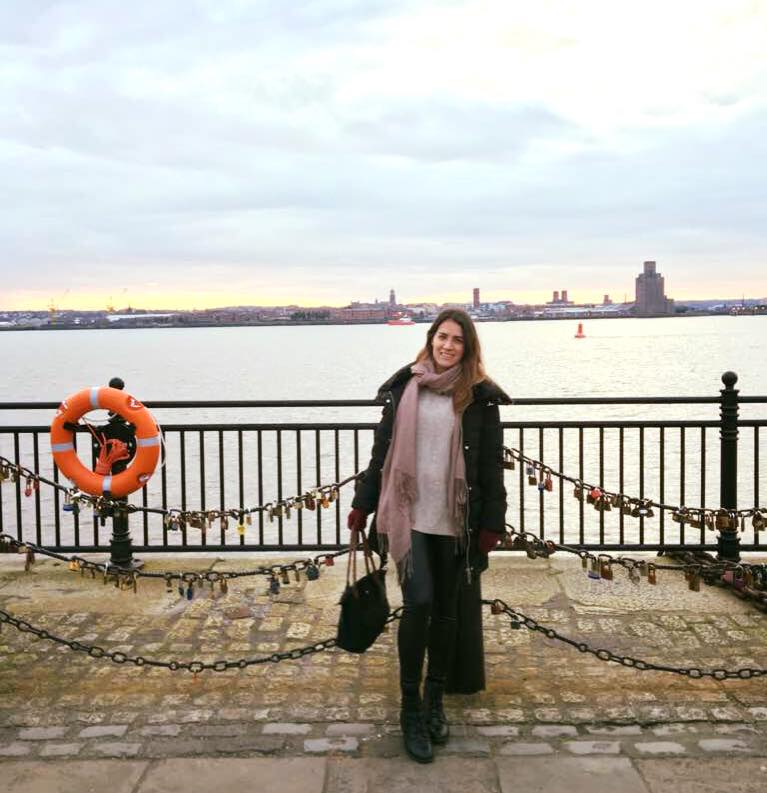
How to get a job in the UK: The story of an international student
There is no denying that international students studying in the UK have a hard task at the end of their studies to secure a job. The changes in the Post-Study Working Visa have meant that the bar has been raised higher but what can you do to help yourself gain employment in this country?
The search for employment after university can be daunting for graduates, especially with the added strain of visa requirements. During this time, it's imperative to remember both your potential and the success of other international graduates before you.
We caught up with Maria Martinez, an alumni of The University of the West of England, to find out what her experience was. Maria, originally from Colombia, moved to Bristol to study for her MSc in Construction Project Management. She has since secured a project management role for multinational engineering firm Aecom. Maria was particularly drawn to Aecom because of their focus on attracting more female talent into the industry. They have a number of women’s groups and networks which promote and encourage women in construction into more senior positions.
The first thing we were keen to find out was how Maria managed to find her role at Aecom through the sea of roles and graduate schemes available. “People told me to apply in June, but that’s when my masters finished so I thought I’d just go for it and see what happens,” Maria explained. She looked at all of her options, spoke to recruiters and her tutors at UWE for contacts. “For me networking was very important,” says Maria. It created the connections that Maria needed to find her role and showed employers her passion for the industry.
As part of her course, her university organised industry visitors from different companies to her lectures. “Every time they brought someone in, I approached them as they could either guide me to another contact or give me good advice”. It was this proactive approach that led Maria to her role, by networking she managed to meet a contact who introduced her to a director of the company she works at today. This was not enough to walk into the role, of course. Maria undertook psychometric tests and interviews but it was her tenacity and networking which led her to securing her graduate role.
Of course it wasn’t all plain sailing; the time pressures on students along with visa issues all have to be considered alongside normal studies. This occurred to Maria, so she applied to larger companies who she felt would be able to sponsor her. Larger companies could also offer a more diverse workforce with experience of employing UK-educated international students. “Everything seemed to work out for me but one of the challenges is time. You need good time management to study, look for a job and have a life,” adds Maria. Rejections from applications can take their toll, but from speaking to Maria, the key is resilience.
Was there anything about Maria’s international status that made her really stand out? As well as her previous experience in architecture, it’s clear that her language skills gave her the edge as she now works seamlessly with teams internationally, in the UK and in Madrid. “I believe in England, people don’t hire you because of your background, they hire you because of your skills,” says Maria. If you don’t have previous industry experience, try volunteering, finding work experience and increasing your knowledge to increase your employability.
It is evident this could not have been achieved without Maria’s hard work and dedication. While some of the struggles for international graduates are universal, you need to remember to play to your individual strengths and think about your personal USPs.
So what are Maria’s top 3 tips for other international graduates looking for roles in the UK?
Apply early
“No matter what people tell you, It’s never too early to start looking for roles. Get a head start as soon as you can”
Networking is key
“Try to make new contacts wherever you can. Networking is the foundation for building your relationships towards finding a job. LinkedIn is a very good tool. The director of my company told me ‘your LinkedIn profile is going to be important as they can confirm you are the person you say you are.’”
Get a snappy CV
“Long resumes are the worst, so keep it short. My resume is one page. If your descriptive paragraph at the top is not engaging, people will ditch it! Be sure to include the correct company name, especially if you’re applying for lots of jobs!”
By registering with us, your CV will be visible to our database of global employers including DELL, Microsoft and PwC. We provide careers advice for international student by region and update our weekly jobs board with the top jobs from around the world.
Please confirm If you want to unregister
You have been unregistered from gradlink







